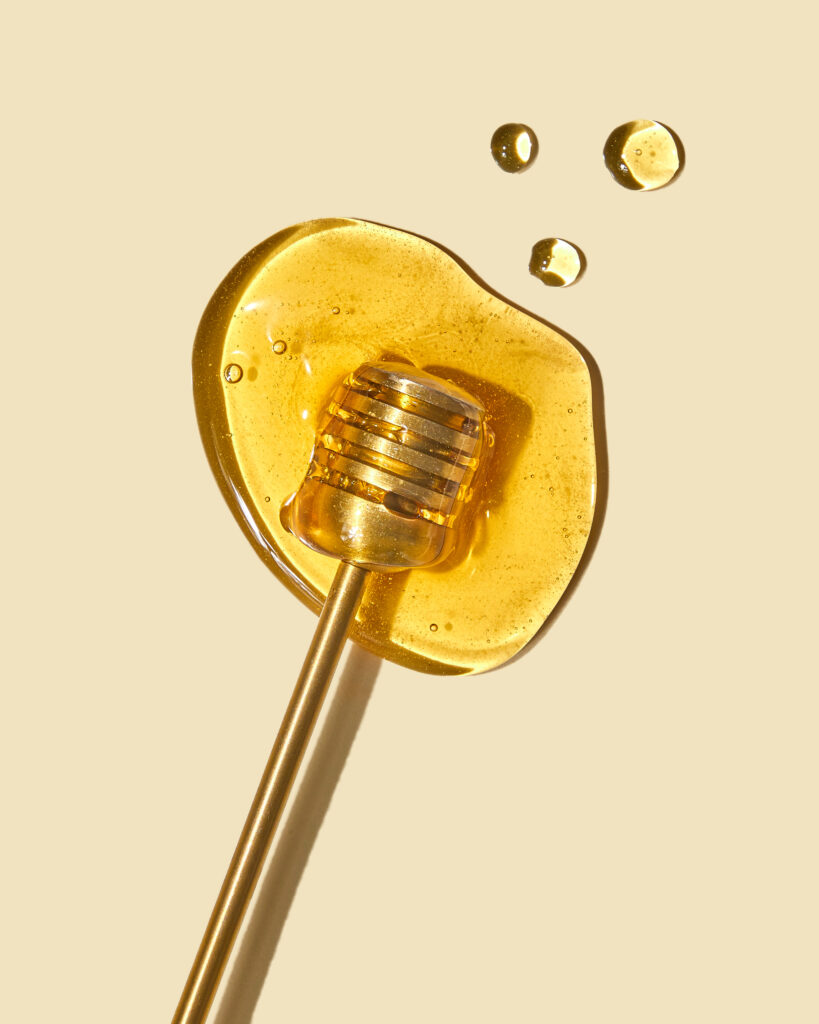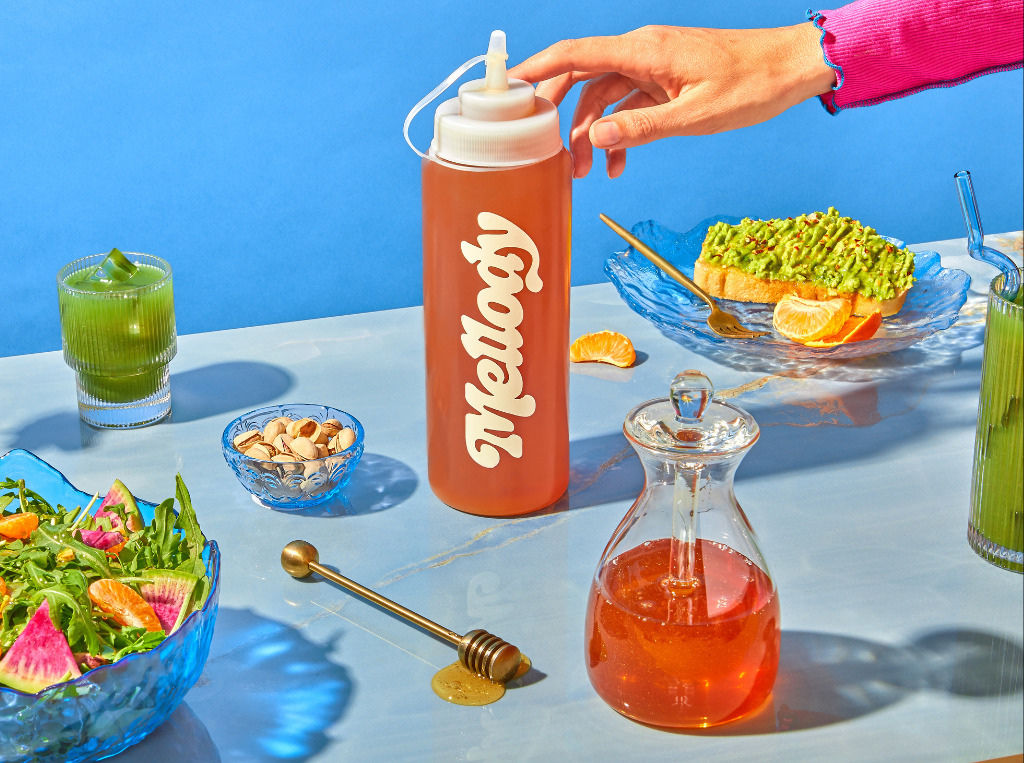Exclusive: Vegan Honey Brand MeliBio Talks Precision Fermentation, Expansion Plans & Upcoming Series A
4 Mins Read
MeliBio co-founder and CEO Darko Mandich tells Green Queen about the company’s pivot from precision-fermented to plant-based honey, its European launch, and an upcoming Series A funding round this autumn.
Months after making its US retail debut with its sub-brand Mellody, in collaboration with plant-forward restaurant Eleven Madison Park, MeliBio is gearing up for a European launch and Series A fundraiser. It comes a year after it closed two seed rounds worth $5.7M and $2.2M, and on the heels of an AgTech Breakthrough award for Food Replacement Innovation of the Year.
MeliBio’s plant-based pivot

The startup burst onto the scene in 2020 promising a precision-fermented, molecularly identical honey, but pivoted to a plant-based product with its launch of Mellody, which contains a blend of vegan ingredients that is said to taste and perform just like honey. “Mellody is a result of our successful plant science commercialisation efforts,” Mandich tells Green Queen. “Most of what makes honey great comes from the kingdom of plants, and we figured that part perfectly.”
He adds that research and development on its original precision fermentation process is still ongoing, and going well. “It will empower us to go beyond the type of product we have right now, and set us [up] for success in launching many new products under the vision of creating the world where humans and bees thrive,” he says.
Asked about the shift from precision fermentation to plant-based ingredients for its first product, Mandich says it happened by accident. “We realised that our investors’ samples are becoming more sophisticated, to the point where chefs begged us to launch our plant-based honey,” he recalls. “We heard our customers loud and clear, and that’s how our pivot happened. It shortens our initial five to seven years’ timeline for product launch down to three years, which is great success.”
Mellody’s health credentials

In 2021, Green Queen writer Alessandra Franco found MeliBio’s flagship precision-fermented sweetener to “tastes, drips and spreads 100% like honey made from bees”, calling the product “revolutionary”. Mellody promises much of the same, with floral, bright and sweet tasting notes that are reminiscent of clover honey.
But how does it compare in terms of ingredients? Mellody’s plant-based honey contains fructose and glucose, complemented by a series of plant extracts (sumac, Fava d’anta, Indian trumpet flower, green coffee bean, chamomile, seaberry), gluconic acid and some natural flavours to replicate bee-derived honey.
It’s the first two that can often ring alarm bells for consumers. But Mandich allays those fears, saying: “Real honey made by bees is mostly fructose and glucose, and Mellody is matching that… And there are many upsides, and one of them is that Mellody is certified glyphosate-free.” Glyphosate is amongst the most widely used agricultural fertilisers, and traces can be collected by honey bees when they’re collecting nectar from flowers. This can pass into commercial honey.
He adds that Mellody contains powerful plant compounds that ensure there are no compromises from switching from bee-made honey to vegan honey.
Europe launch and Series A fundraise

MeliBio – named one of Time’s 100 Best Inventions in 2021 – announced last November that it’s gearing up for a European launch, having partnered with organic food producer Narayan Foods. The latter’s Better Foodie brand uses MeliBio’s tech to create a vegan honey product that will roll out in 75,000 stores in Germany and UK this autumn.
Around the same time, Mandich reveals to Green Queen that MeliBio will open a Series A funding round, with “substantial runway” to support its growth. “Our lean approach and CapEx-free strategy helped us avoid the need for gigantic capital influxes,” he says, adding: “No CapEx investments are planned from Series A funds, only growth and expansion.”
“We as a company take market testing and customer feedback as the most important drivers of our expansion strategy,” says Mandich. “We are currently omnichannel and collecting many insights that will empower us to pursue our specific channel that will scale post-Series A. As we are speaking, our paying customers are mid-sized B2B food companies and restaurants.”
Speaking of scaling up, MeliBio – which has raised $9.4M in total funding so far – has upped its production to 10,000 lbs per day. This is considered medium-scale in the honey industry – a major achievement for a three-year-old plant-based startup.
Currently, its products come with a slight premium price tag – a 360g jar of Mellody honey sets you back $45. But, while not inexpensive, it’s also certainly nowhere near the markup some ultra-premium honey varieties carry. And there’s good news for vegan honey fans: Mandich says 2024 will bring price parity with European and American honey types.
Next year, it also plans to onboard new consumers and continue its European rollout. Mandich says MeliBio’s focus is on Europe, the UK and the US in the short term, but doesn’t rule out an Asia expansion in the future. “Asia is [an] important market, and we are evaluating how to approach it,” he says.



